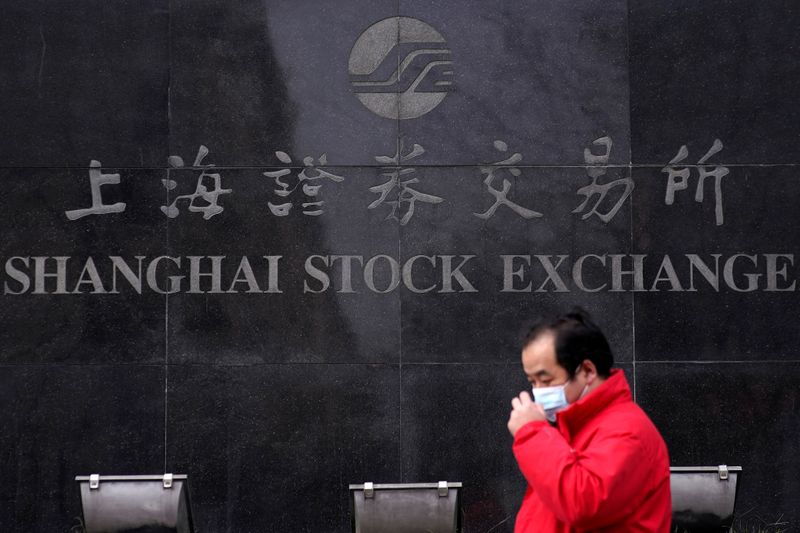(Bloomberg) -- China’s key equities index fell on Thursday following the Labor Day break, led by a slump in drugmakers after news that the U.S. will support a proposal to waive intellectual-property protections for Covid-19 vaccines.
The CSI 300 Index dropped 1.2%, while the Shanghai Composite Index slipped 0.2% at close. The tech-heavy ChiNext Index fell 2.5%. The health-care subgauge was the worst performer on the benchmark CSI 300, while Shanghai Fosun Pharmaceutical Group Co. dropped by as much as 26% in Hong Kong on the prospect of increased global supply.
Tourism stocks also fell despite the increased number of travelers over the break from a year earlier. Songcheng Performance Development Co. closed 5.4% lower, while China Tourism Group Duty Free Corp. lost 5.2%. Even with domestic travel recovering, spending still lags, Citigroup Inc (NYSE:C). analysts including Lydia Ling wrote in a note.
Adding to the bearish sentiment was a statement from China saying the nation was suspending ministerial economic talks with Australia, a largely symbolic move showing Beijing’s growing frustration with Canberra. Rising geopolitical tensions between China and some western countries are also weighing on the market, with the European Union increasingly taking a tougher stance on Beijing.
“It’s unclear what the actual impact of halting the dialogue will be on trade and markets,” said Wu Xuan, chief strategist at Tebon Fund. “It does cast doubt and uncertainty towards the safety of investments of Chinese firms overseas, especially in areas where the geopolitical conditions are not so friendly toward China.”
While growth continues in the world’s second-largest economy, traders say the recent economic signals offer few catalysts to push the key benchmark away from its recent narrow band. The best quarterly earnings since 2010 were met with range-bound trading, a wave of new pandemic cases in developing countries is weighing on markets, a supercharged commodities boom may spur inflation and the Communist Party’s Politburo meeting last week called for a continuation of macro policies.
“The mainland market lacks upside catalyst,” said Castor Pang, head of research at Core Pacific Yamaichi. “The Politburo meeting offered nothing that excite the investors, as there is no additional incentives to boost the economy. The virus situation is worrying and the relationship with the U.S. is relatively sour.”
Traders were jittery about Thursday’s open as they recalled their return from the last national holiday in February when a rally that pushed the CSI 300 past its 2007 peak fizzled on the back of a renewed deleveraging campaign by Beijing. The gauge is down 12% since that year-to-date high before Thursday.
That’s not to say there aren’t drivers that could give the market a lift out of the doldrums. The end of the holidays will mean retail investors could return en masse, having piled into Chinese equity exchange-traded funds ahead of the break. Both Goldman Sachs Group Inc (NYSE:GS). and UBS Group AG (SIX:UBSG) strategists believe the recent decline has made Chinese stocks relatively attractive, as the benchmarks are trading at undemanding price-to-earnings multiples.
Read more: ‘Buy in May’ Is Right Strategy for Goldman and UBS: China Today
Foreign investors have been bullish: they bought a combined 52.6 billion yuan ($8.1 billion) of mainland stocks through Hong Kong’s stock trading links with Shanghai and Shenzhen in April, the most in four months, according to Bloomberg data. On Thursday, they net bought 184 million yuan of mainland shares via the links.
(Updates closing prices in paragraphs 2 and 3, adds northbound flow in final paragraph)
©2021 Bloomberg L.P.
